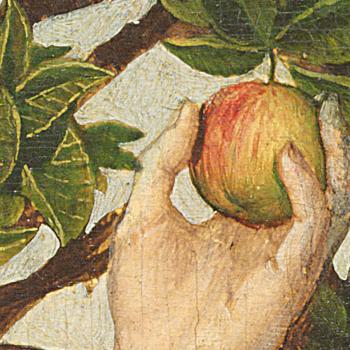
How do we determine our worth? The world has an ugly method, describing a person’s ‘net worth’ as a simple measure of wealth. Some would say that’s just a turn of phrase, but there are reasons we choose and use the words we do. To me, the term ‘net worth’ is a Freudian slip, revealing an idolatrous addiction to greed and wealth.
How about as individuals? What gives each of us value? Unless the answer is that value comes from simply existing, a person is caught up in what psychologists call ‘conditions of worth’ – I am only worth something if I’m X or Y, or have achieved Z.
Some of the pitfalls are obvious – wealth, the importance of one’s position at work, whether or not we have a family, a spouse, property, by the number of friends we have, how many likes we get on social media etc. But there are some traps which are far more subtle.
For me, the biggest pitfall has always been valuing myself according to spirituality. Emerging into adulthood, I felt unvalued for any of my skills or talents. To avoid the trap of victimhood, I won’t go into the reasons why that was the case, but subconsciously it led me to seek other avenues of affirmation.
It was at this time I became deeply spiritual, spending years fervently seeking God, and building communities of like-minded believers around me wherever I went, including on the mission field in SE Asia. I became an evangelist, leading many people to the Lord, and a prophet, speaking words that had a significant impact. The stories I could tell about those days, but I want to avoid anything that looks like boasting. It is the Lord who acts through us, and his power that makes the miraculous difference. 1 Corinthians 3:7,
‘So then neither he who plants is anything, nor he who waters, but God who gives the increase.’
Looking back at those years, and all the fruit they have borne, I can see that there was poison in the pot. God was good enough to use me for the sake of his kingdom, and like all of his servants I am a million miles away from perfect, but at the heart of my drive to seek and know God was an intermingling of good and poor motives. The poorest motive was to be important, to feel listened to and valued as a spiritual voice, because that was how I valued myself.
The valuing of yourself in such a way puts a pressure on friendships – love me, love my ministry. Friends had to accept me in the way I presented myself for me to feel comfortable around them, which left little room for connections with people who saw me differently, cutting me off from diverse avenues of companionship and inspiration and narrowing my in-group to those who saw me a certain way. This is perfectly possible if you’ve had a significant impact in some people’s lives, but it is a false comfort, reinforcing a condition of worth – I am valuable because I am spiritual.
The obvious negative implication of this form of value is devaluing those who are not spiritual, or who I might perceive that way. Again, this wouldn’t have been conscious, but it was nonetheless a factor in my subconscious engagement with other people.
I expose this weakness in myself because it no longer holds me and I’m glad to wave it goodbye. Recent revelations have set me free from this kind of self-value, and instead I perceive complete equality with all human beings, every one of whom holds infinite value because they are made in the image of God. We are all fundamentally special, wonderful, valuable creatures, from the poorest to the richest in society, from the hardest hearted to the most spiritually yielded.
Another subtle example of a condition of worth is valuing oneself according to suffering. You know the kind of people I’m talking about – the ones who can’t let anyone else speak of their personal challenges without butting in and drawing attention to their own, which of course are far harder. A person who has suffered greatly is presented with a pitfall when sympathy is given. Sympathy/empathy are great when received in a healthy way, but if they becomes the way a suffering person receives attention, then what was once healthy becomes an addiction. For such a person, consciousness of suffering is always close to their thoughts, bubbling away in the mind, because without it they lose the value they’ve assigned themselves.
This is why I don’t believe we should identify too closely with our sufferings. Yes, I have Crohn’s Disease, but I barely speak of it. My mental and physical health have faced many challenges, but that doesn’t define me. Worth comes from simple self-acceptance, which is one of the hardest positions to truly reach.
What about you? How do you assess your worth? I suspect there will be many reading this who have a low self-view, perhaps because of personal failures or lacks. Do you compare yourself to a sibling? Are you deeply conscious of failure? Negative self-worth is always wrong, because it denies the value inherent in every human being, each of whom carries the image of God. To devalue yourself is to devalue God.
I posted about this topic on Facebook to see what my friends would say, and even friends I admire most came back with compromised answers – that we should value ourselves according to having a good attitude or exemplary behaviour. These are laudable qualities but not a source of true worth. They tell us ‘I am valuable because of how I think’, implying that anyone not there yet or with a different point of view is less valuable.
The truth is as simple as it is hard to embrace – our worth comes from being a human being, made in the image of God. We all have endless potential, but no amount of achievement or merit can ever define how we value ourselves, lest we return to self-righteousness – I qualify for favour because I am good in some specific way. The very heart of the Gospel message tells us this is the opposite of faith. Self-acceptance then, at least for the believer, means embracing our fundamental value as God’s creation, and refusing any personal quality or achievement as an argument for divine or human approval. With the Lord, all is love, grace, and mercy.
P.S. Part 1 was published as a featured Patheos piece on the dangers and damage of unhealthy competition: https://www.patheos.com/articles/exercises-in-self-value-escaping-the-prison-of-competition












